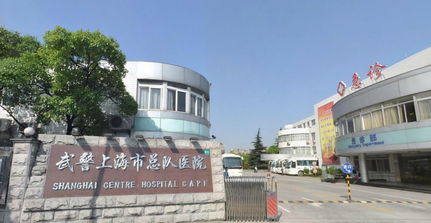Title: Exploring the Role and Functioning of the Armed Police General Hospital
Introduction
Armed Police General Hospital (APGH) is a prominent medical institution within the Chinese healthcare system, providing specialized medical services primarily to members of the armed forces and their families. This essay delves into the structure, services, and significance of APGH within the healthcare landscape of China.

History and Background
Established in [year], Armed Police General Hospital (APGH) has played a crucial role in catering to the healthcare needs of the armed forces and their families. Over the years, it has evolved into a comprehensive medical facility equipped with advanced technology and a team of skilled medical professionals.
Specializations and Services
1.
Emergency Services
: APGH is equipped to handle emergencies round the clock, ensuring timely medical assistance to patients in critical conditions.2.
Specialized Departments
: The hospital encompasses specialized departments such as cardiology, oncology, neurology, orthopedics, and more, providing comprehensive medical care across various disciplines.3.
Military Medicine
: APGH offers specialized services tailored to the unique healthcare needs of military personnel, including trauma care, battlefield medicine, and psychological support.4.
Research and Education
: As a leading medical institution, APGH is actively involved in research activities and medical education, contributing to advancements in healthcare practices and training future generations of medical professionals.Infrastructure and Technology
APGH boasts stateoftheart infrastructure and advanced medical technology, facilitating accurate diagnosis and effective treatment. From modern surgical theaters to advanced imaging modalities, the hospital is equipped with the latest medical equipment to deliver highquality healthcare services.
PatientCentric Approach
The hospital adopts a patientcentric approach, prioritizing the wellbeing and comfort of patients. From compassionate medical staff to efficient administrative support, APGH strives to provide a positive healthcare experience for every patient.
Collaborations and Partnerships
APGH collaborates with various domestic and international medical institutions, fostering knowledge exchange and enhancing its capabilities. These partnerships enable the hospital to stay updated with the latest medical advancements and broaden its scope of services.
Community Engagement and Outreach
Apart from providing medical care within its premises, APGH actively engages in community outreach programs and health education initiatives. These efforts aim to raise awareness about preventive healthcare practices and promote overall wellbeing within the community.
Future Directions and Challenges
Despite its achievements, APGH faces certain challenges, including the need for continuous upgrades in technology, addressing the healthcare needs of an aging population, and maintaining a balance between military and civilian healthcare services. However, with strategic planning and ongoing commitment, the hospital is wellpositioned to overcome these challenges and continue its legacy of excellence in healthcare delivery.
Conclusion
Armed Police General Hospital (APGH) stands as a beacon of medical excellence, catering to the specialized healthcare needs of military personnel and their families. With its comprehensive services, advanced infrastructure, and patientcentric approach, APGH plays a pivotal role in ensuring the health and wellbeing of its beneficiaries while contributing to advancements in medical science and education.
Exploring the Role and Functioning of the Armed Police General Hospital
Armed Police General Hospital (APGH) is a prominent medical institution within the Chinese healthcare system, providing specialized medical services primarily to members of the armed forces and their families. This essay delves into the structure, services, and significance of APGH within the healthcare landscape of China.
Established in [year], Armed Police General Hospital (APGH) has played a crucial role in catering to the healthcare needs of the armed forces and their families. Over the years, it has evolved into a comprehensive medical facility equipped with advanced technology and a team of skilled medical professionals.
APGH boasts stateoftheart infrastructure and advanced medical technology, facilitating accurate diagnosis and effective treatment. From modern surgical theaters to advanced imaging modalities, the hospital is equipped with the latest medical equipment to deliver highquality healthcare services.
The hospital adopts a patientcentric approach, prioritizing the wellbeing and comfort of patients. From compassionate medical staff to efficient administrative support, APGH strives to provide a positive healthcare experience for every patient.
APGH collaborates with various domestic and international medical institutions, fostering knowledge exchange and enhancing its capabilities. These partnerships enable the hospital to stay updated with the latest medical advancements and broaden its scope of services.
Apart from providing medical care within its premises, APGH actively engages in community outreach programs and health education initiatives. These efforts aim to raise awareness about preventive healthcare practices and promote overall wellbeing within the community.
Despite its achievements, APGH faces certain challenges, including the need for continuous upgrades in technology, addressing the healthcare needs of an aging population, and maintaining a balance between military and civilian healthcare services. However, with strategic planning and ongoing commitment, the hospital is wellpositioned to overcome these challenges and continue its legacy of excellence in healthcare delivery.
Armed Police General Hospital (APGH) stands as a beacon of medical excellence, catering to the specialized healthcare needs of military personnel and their families. With its comprehensive services, advanced infrastructure, and patientcentric approach, APGH plays a pivotal role in ensuring the health and wellbeing of its beneficiaries while contributing to advancements in medical science and education.
